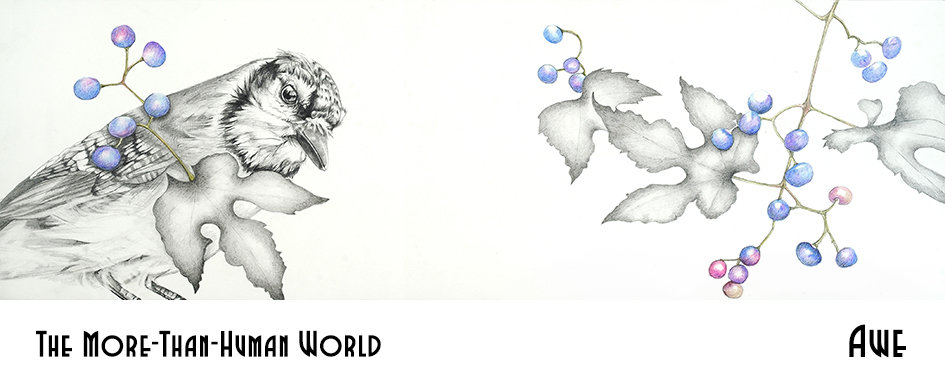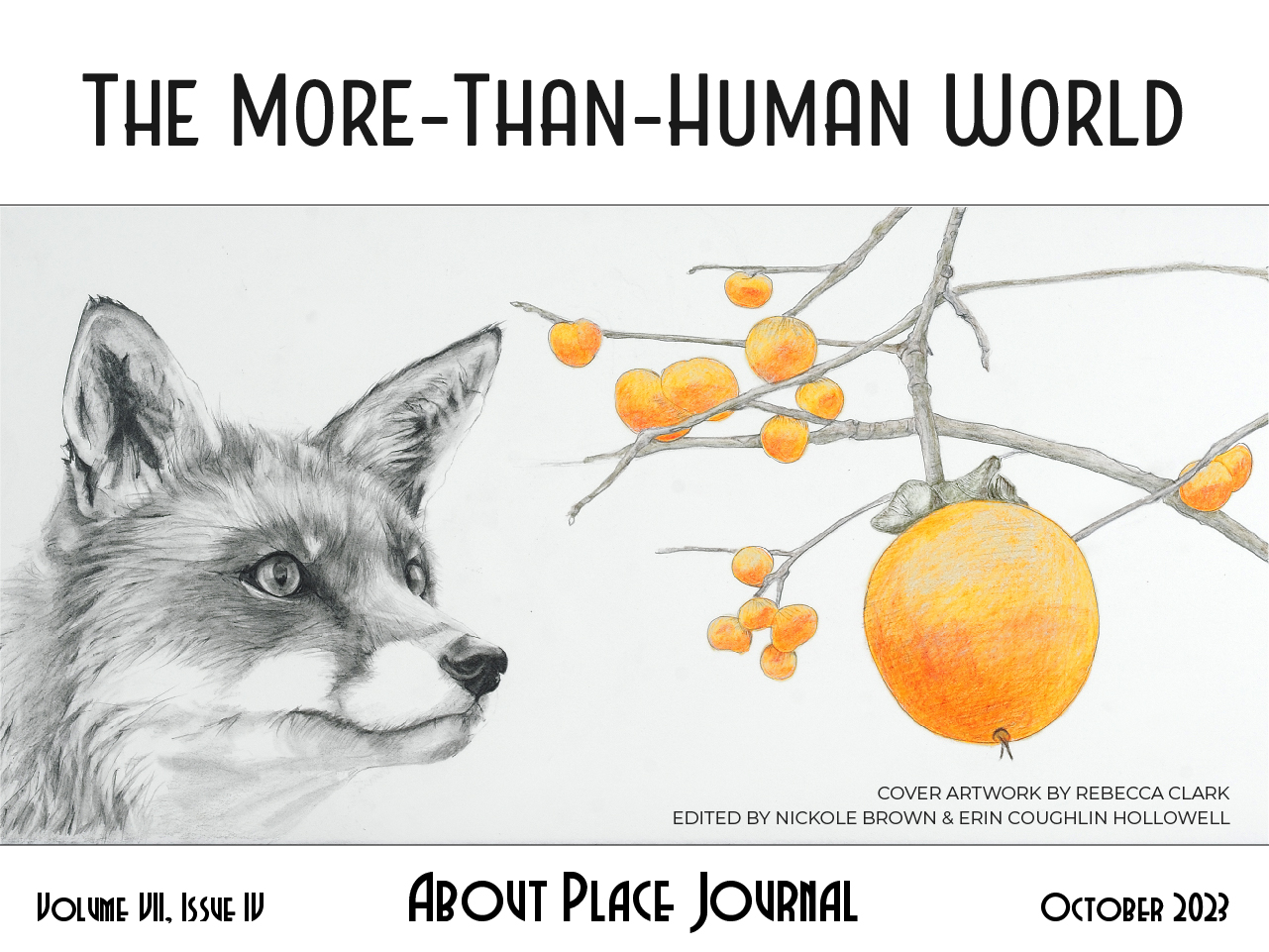Midsummer
high on the Tree: your mother, freshly
fucked, strokes a young green acorn with her dowsing-
rod antennae, seeming absent-minded, divines the precise spot, saws
a pinhead circle through the pericarp with the blades on the tip of her ex-
quisitely curved rostrum to quaff the kernel’s rich oil, then drills deep, steady
and deep, reaching up to her hilt into its oaken heart. Turning, she posts a
pearled egg down the shaft, plugs it with dung to disguise it. Oh to be
bounded in a nutshell, your orb your ark your abbey, feasting on the
fruit of the Tree, the nut your nursery and you curled creamy nestled
nuzzling gnawing. Your darksecret love ecstatic. Come Fall the acorn,
your larder-fortress, falls. Together, you never fall far from the Tree.
Percussion of impact your cue to chew a hatch out of the hold, then
wriggle struggle your pillowy amplitude effortfully through—you
have ballooned after all that eating—tumble onto oakleaf duff and
grub down into soil at the Tree’s roots to drowse, dream, dissolve
and recast yourself for years—one, two, five—till one warm
day you stir, clamber out, lift your unused elytra, unfold
your long tulle wings, still creased with newness,
and fly up to the Tree from which you
came to begin
again.


